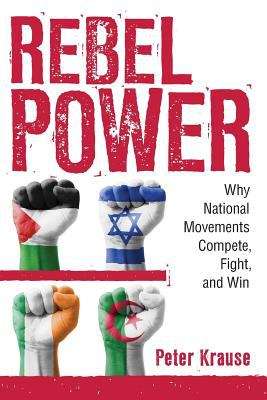Rebel Power: Why National Movements Compete, Fight, and Win
By:
Sign Up Now!
Already a Member? Log In
You must be logged into Bookshare to access this title.
Learn about membership options,
or view our freely available titles.
- Synopsis
- Many of the world's states--from Algeria to Ireland to the United States--are the result of robust national movements that achieved independence. Many other national movements have failed in their attempts to achieve statehood, including the Basques, the Kurds, and the Palestinians. In Rebel Power, Peter Krause offers a powerful new theory to explain this variation focusing on the internal balance of power among nationalist groups, who cooperate with each other to establish a new state while simultaneously competing to lead it. The most powerful groups push to achieve states while they are in position to rule them, whereas weaker groups unlikely to gain the spoils of office are likely to become spoilers, employing risky, escalatory violence to forestall victory while they improve their position in the movement hierarchy. Hegemonic movements with one dominant group are therefore more likely to achieve statehood than internally competitive, fragmented movements due to their greater pursuit of victory and lesser use of counterproductive violence.
- Copyright:
- 2017
Book Details
- Book Quality:
- Excellent
- ISBN-13:
- 9781501708565
- Publisher:
- Cornell University Press
- Date of Addition:
- 03/28/18
- Copyrighted By:
- Cornell University
- Adult content:
- No
- Language:
- English
- Has Image Descriptions:
- No
- Categories:
- Nonfiction, Social Studies, Politics and Government
- Submitted By:
- Daproim Africa
- Proofread By:
- Daproim Africa
- Usage Restrictions:
- This is a copyrighted book.
